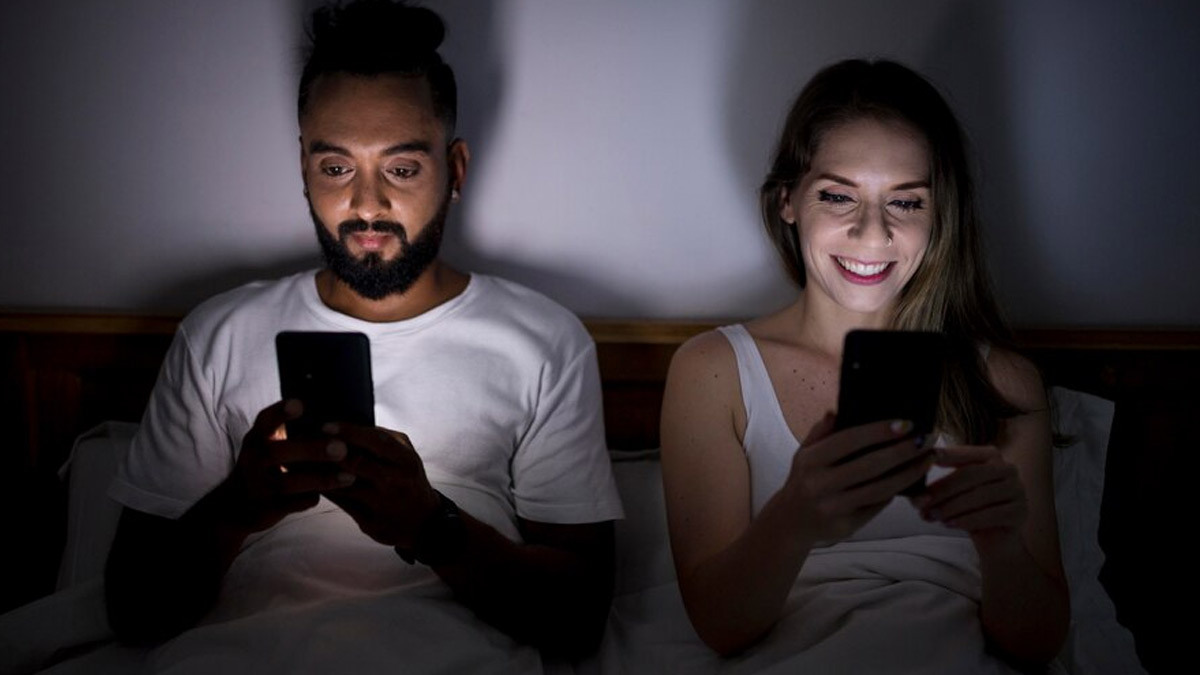
In the era of smartphones, tablets, and laptops, our lives are increasingly intertwined with digital screens. While these devices have undoubtedly brought convenience and connectivity, they also have implications for our skin health. Let's dive into the world of 'digital skincare' to understand how screen time can affect your complexion and explore effective ways to mitigate its impact.
Table of Content:-
Screen Time Affects Skin Health
Extended screen time can contribute to several skin issues. One of the most common concerns is blue light exposure emitted by digital screens. According to research publihsed in the Journal of Cosmetic Dermatology, prolonged exposure to blue light may lead to increased skin pigmentation, freckle like spots, skin ageing, and oxidative stress.

Here's how you can combat skin damage due to blue light:
- Antioxidant Skincare: Add skincare products rich in antioxidants like vitamin C and E, which can help neutralise free radicals generated by blue light exposure.
- Screen Filters: Consider applying screen filters on your devices to reduce blue light emission. These filters can be particularly beneficial during evening hours when exposure to artificial light can interfere with sleep.
Protect Your Eyes From Digital Strain
According to a study led by the Shiraz University of Medical Sciences, 'exposure to light emitted from electronic devices on human skin cells, even in case of short exposures, can increase the generation of reactive oxygen species.' Moreover, staring at screens for extended periods can contribute to eye strain and fatigue, impacting the delicate skin around the eyes.
Here's how you can protect your eye skin:
- 20-20-20 Rule: Follow the 20-20-20 rule to give your eyes a break. Every 20 minutes, take a 20-second break and look at something 20 feet away. This can alleviate eye strain.
- Hydration and Lubrication: Use artificial tears to keep your eyes moist, preventing dryness caused by prolonged screen time. Staying hydrated also contributes to overall eye health.

Mindful Screen Practices
In today's world, it is almost impossible to be without your phone. While you can try to limit your screen time, completely avoiding it so you can prevent skin damage is tough. In such a case, you can follow these practices:
- Digital Detox: Schedule regular digital detox periods where you disconnect from screens. This not only benefits your skin but also promotes overall well-being.
- Adjust Screen Brightness: Optimise your device settings by adjusting brightness and contrast. Lowering screen brightness can reduce the intensity of blue light exposure.
- Limit Screen Time Before Bed: The blue light emitted by screens can interfere with sleep patterns. Establish a pre-sleep routine that minimises screen time at least an hour before bedtime.
- Night Mode Settings: Many devices offer a night mode setting that reduces blue light emission during the evening. Enable this feature to minimise potential disruptions to your sleep cycle.
Also Read: Here's What You Need To Know About Nomophobia, The Fear Of Being Without Your Smartphone
While digital screens have become an integral part of our daily lives, it's crucial to prioritise our skin health in the digital age. Implementing these strategies and adopting mindful screen practices can help you strike a balance between the convenience of technology and maintaining a radiant complexion. Remember, a little digital skincare can go a long way in preserving the health and glow of your skin.
How we keep this article up to date:
We work with experts and keep a close eye on the latest in health and wellness. Whenever there is a new research or helpful information, we update our articles with accurate and useful advice.
Current Version
